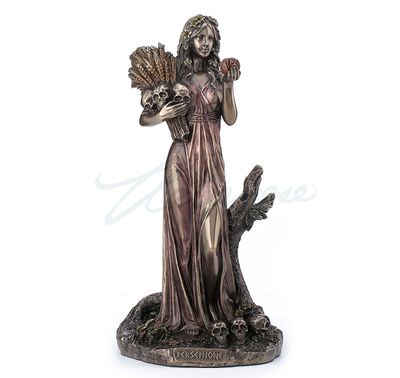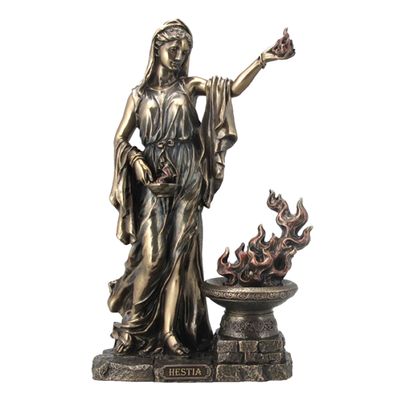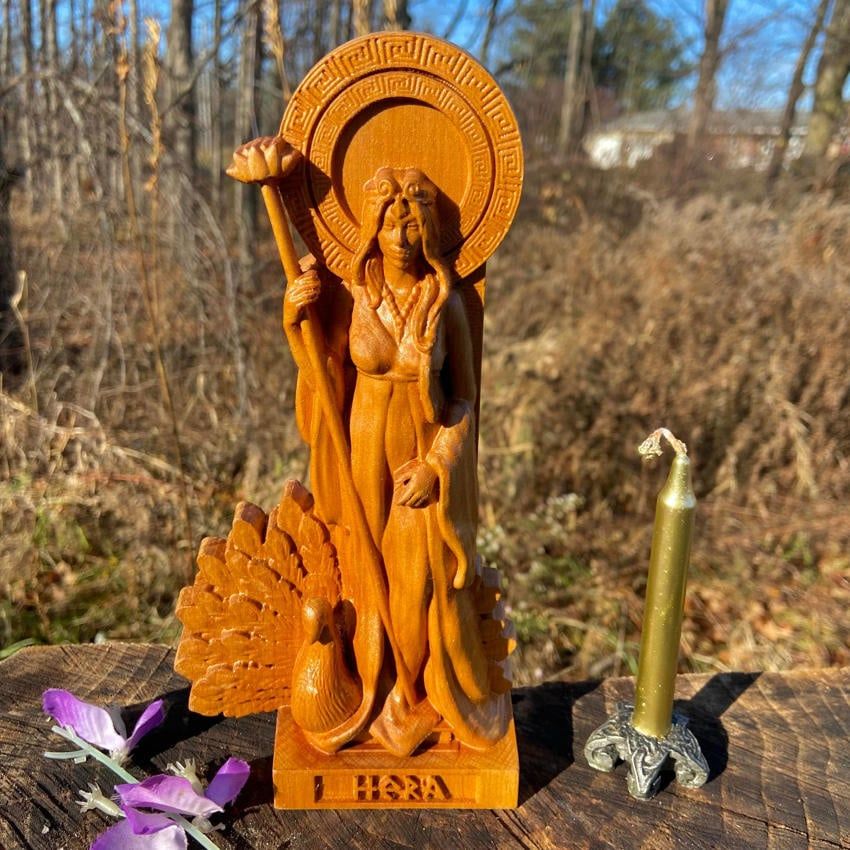Witchcraft supplies and wicca supplies online from one of the USA's BEST pagan stores! WINTER SALE NOW ON! USE COUPON CODE "DARKARTES" FOR 20% OFF SITEWIDE!!!
Wooden Hera Statue Hand Carved
$99.00
Sold out
HAND CARVED in Northern Europe by pagans from Alder!! Gorgeous unique pagan, heathen and witchcraft statues for your altar, or for use in ritual Magick or as an idol, or just because they make your room look great. Carved by pagans for pagans!
Sold out
Product Details
Brand: Luna Ignis
Tags: Altar Statue,Earth,Greek,goddess,mother
We proudly import these from Northern Europe! A small pagan company in Ukraine hand carves these amazing altar statues of the pagan gods and goddesses BY HAND! Most pagan statues on the market are “cold cast resin” – which is fine, but they are basically resin/plastic and mass produced. These are unique, every detail is hand carved! These are tools you will be proud to pass onto the next generation!
Approximately 9 inches high.
Carved from beautiful Alder, one of the famous Celtic Ogham trees. Alder trees feature often in Celtic Mythology and Folklore. They are said to be home to fairies, they are the symbol of Bran in Welsh Mythology and are most often associated with water, secrecy, nature, spirituality, and balance. Alder trees were a source of great mystery to the Celts. Their sap turns a deep red when exposed to the air, as if they could bleed when cut. The bleeding bark and affinity with water led to many negative superstitions about the trees. Alders were considered highly sacred, mysterious and secretive, often thought of as representing nature itself and containing the souls of our ancestors. For this reason Alder is a great choice for a hand carved pagan god or goddess statue for your ritual altar!
The wife of Zeus, the Queen of Olympus, and the Olympian goddess of marriage. As such Hera is also the deity most associated with family and the welfare of women and children. Her marriage, however, was an unhappy one, since Zeus had numerous affairs. Jealous and vengeful, Hera made sure to give each of his consorts some hard time. Based on the number of cults, Hera was a very ancient goddess, possibly predating even Zeus. In fact, it’s assumed that we don’t even know her original name. “Hera” is actually a title, which is usually translated as “Lady” or “Mistress.” Hera’s Roman counterpart was Juno, the goddess who gave her name to the month of June, even today, the most popular time for weddings.
Hera was usually portrayed alongside Zeus, as a fully clothed matronly woman of solemn beauty, wearing a cylindrical crown called polos or a wreath and a veil. Sometimes she carries a scepter capped with a pomegranate and a cuckoo – the former a symbol of fertility, the latter a token of the way she was wooed by Zeus. She is also often accompanied by a peacock, one of her sacred animals. Homer often refers to Hera as “cow-eyed” and “white-armed” – which are her most famous epithets. She is also sometimes called “a virgin,” since it was believed that every year she bathed in a spring to renew her virginity.
Save this product for later
Wooden Hera Statue Hand Carved
You May Also Like

Persephone Greek Goddess of Vegetation and the Underworld
Gorgeous pagan and witchcraft statue for your altar, or for use in ritual Magick or as an idol, or even just because they make your room look great. These are by Veronese Designs! Hand painted cold cast resin pagan statues for witchcraft and wicca.
Persephone Greek Goddess of Vegetation and the Underworld
$69.99

Hestia Greek Goddess of Hearth
Gorgeous pagan and witchcraft statue for your altar, or for use in ritual Magick or as an idol, or just because they make your room look great. These are by Veronese Designs! Hand painted cold cast resin pagan statues for witchcraft, paganism and wicca.
Hestia Greek Goddess of Hearth
$79.99
Powered by Lightspeed
Display prices in:USD

